- Photos
- Works
Main Photo
Other photo of Jeb Bush
Former Florida Gov. Jeb Bush helps 5th graders Angelica Pinero, center, and Diamonique Christian, right, with math exercises at Tangelo Park Elementary School in Orlando, Fla. Mr. Bush visited the school as part of his work with his Foundation for Excellence in Education.
Other photo of Jeb Bush
43rd Governor of Florida
Other photo of Jeb Bush
John Ellis "Jeb" Bush
Other photo of Jeb Bush
President Barack Obama (left), U.S. Education Secretary Arne Duncan (middle) and former Florida Gov. Jeb Bush (right) at a Miami rally
Other photo of Jeb Bush
Jeb and George Walker Bush
-
![]()
-
data-src="/web/show-photo.jpg?id=9209&cache=false" src="" alt="" class="gallery-slider__content__img" height=""
-
data-src="/web/show-photo.jpg?id=9210&cache=false" src="" alt="" class="gallery-slider__content__img" height=""
-
data-src="/web/show-photo.jpg?id=9211&cache=false" src="" alt="" class="gallery-slider__content__img" height=""
-
data-src="/web/show-photo.jpg?id=9212&cache=false" src="" alt="" class="gallery-slider__content__img" height=""
-
data-src="/web/show-photo.jpg?id=9214&cache=false" src="" alt="" class="gallery-slider__content__img" height=""
-
![]()
-
![]()
-
![]()
-
![]()
-
![]()
-
![]()
-
![]()
-
![]()
-
![]()
-
![]()
-
![]()
-
![]()
- Photos
- Works
Jeb Bush Edit Profile
Education
Between his junior and senior years in high school, Bush visited León, Guanajuato, Mexico, a decision that would shape his personal and political life for years to come.
He completed his coursework in two and a half years with generally excellent grades.
Career
During his two terms, Bush championed major reform of government programs in education and Medicaid. The state also launched and accelerated restoration of America’s Everglades, the largest project of its kind in the world, to save the habitat of 60 threatened and endangered species and provide a long-term supply of drinking water for 8 million people in South Florida.
Entry into Politics:
Although he grew up around national Republican politics and worked on his father's presidential campaign, Bush didn't enter into politics himself until five years later, when he was elected chairman of the Dade County Republican Party. After the 1986 election, newly minted Republican Gov. Bob Martinez appointed Bush to be Florida's commerce secretary. He held that position until 1988, when he resigned once again to work on his father's presidential campaign while simultaneously managing the campaign of the first Cuban-American Congressman.
First Gubernatorial Victory:
In 1994, Bush sought and won the Republican nomination for governor, but lost to Democratic incumbent Lawton Chiles. After his defeat, Bush became rigorously involved in Florida charities and civic enterprises. He founded and financed a non-profit public policy think-tank called The Foundation for Florida's Future, and co-founded Florida's first charter school. In 1998, Bush returned with a vengeance to become governor, and claimed a commanding 10-point victory over Democratic Lieutenant Gov. Buddy MacKay. Bush earned his victory primarily because of his connection and popularity with Florida's Hispanic community.
First Term as Florida Governor:
Bush's popularity with Florida's large Hispanic community stems not only from his marriage to a Mexican woman, but also from his deep ties to Cuban and Latin-American businesses. These ties were bolstered during his first term by alliances with other minority communities in Florida, which were brought about by a deep and solemn commitment to improving the state's inner-city schools. He earned great respect from African Americans thanks to his emphasis on parental involvement in education, but his "One Florida" initiative effectively ended affirmative action at public universities and cost him an honorary degree.
Second Gubernatorial Victory:
As Bush prepared for re-election in 2002, many political observes -- both Republican and Democrat -- expressed doubts about his chances, not because of Bush's popularity (he remained extremely popular), but because no Republican had ever won re-election in Florida history. Former Attorney General Janet Reno ran for the Democratic nomination, but was narrowly defeated by lawyer Bill McBride. A controversy erupted regarding several late-opening polling places in Reno's home areas that defied state orders to remain open late to compensate for the their a.m. delays. In the chaos, Bush coasted to a 13-point victory.
Bush's Second Term:
As the only Republican to ever win a second term in Florida, Bush continued to govern conservatively and continued to push for his legislative goals. However, four hurricanes in two years took their toll on Florida, especially Katrina in 2005. The storm caused 14 fatalities and devastated Southern Florida and the Panhandle, causing more than a billion dollars worth of damage. Bush used the line-item veto in May 2006 to initiate 5.8 million in budget cuts, most of which were directed at libraries and education. Despite the budget dust-up, Bush finished popular and was the only Republican ever to serve two full terms.
Post-Gubernatorial Aspirations:
Late in his second term, Bush was reportedly approached by the NFL to become its next commissioner. Despite his great interest in football, Bush politely declined, vowing to see his gubernatorial duties through to the end. Since his departure from the governor's office speculation about Bush's political future have abounded. In 2008, he was said to have considered running for U.S. Senate, but ultimately declined. In 2010, his name was being circulated as a possible 2012 presidential candidate. Bush has used his time to support candidates and give speeches.
Achievements
-
His "A+ Plan" mandated standardized testing in Florida's public schools, eliminated social promotion and established a system of funding public schools based on a statewide grading system using the FCAT test.
-
Bush launched and accelerated restoration of America’s Everglades, the largest project of its kind in the world, to save the habitat of 60 threatened and endangered species and provide a long-term supply of drinking water for 8 million people in South Florida.
-
He started a non-profit organization called The Foundation For Florida's Future, a think tank that stated as its mission influencing public policy at the grassroots level.
-
Bush co-founded the first charter school in the State of Florida: Liberty City Charter School, a grades K-6 elementary school.
-
In 2000, Bush established the Points of Light program
Works
Membership
Interests
Connections
Jeb Bush was born in Midland, Texas in 1953, the son of oil tycoon and future politician, George Herbert Walker Bush and his wife, Barbara. Along with his older brother, Bush was enrolled in a private preparatory school in Massachusetts, where he excelled in academics. Between his junior and senior years in high school, Bush visited León, Guanajuato, Mexico, a decision that would shape his personal and political life for years to come. While there, he met his future wife, Columbia Garnica Gallo, and made the decision to major in Latin American Affairs at University of Texas, where he graduated Phi Beta Kappa in 1973.
Two of Bush's three children have had minor run-ins with law enforcement. his daughter, Noelle, was accused of attempting to fraudulently obtain prescription drugs in 2002, and was later found in contempt due to a cocaine infraction. She eventually enrolled in rehab and has been able to rebuild her life. In 2005, Bush's son, Jebby, was arrested for public intoxication and resisting arrest. By 2008, however, it appeared he, too, had gotten his life together; he became an outspoken supporter of Rudy Giuliani's bid to become president and coordinated the former New York governor's Florida campaign.
Bush married Columbia in 1974, and the couple had three children; George P., Noelle and John "Jebby" Jr. Bush got his feet wet in business with the Texas Commerce Bank, originally working as a communications specialist and later opening a branch for the bank in Caracas, Venezuela, where he and his young family lived for two years. In 1980, he returned to the U.S. to work on his father's presidential campaign (without salary). After his father became vice-president, Bush moved his family to Miama, where he worked in real estate for Armando Codina, a self-made Cuban millionaire. The two eventually became partners.
- Father:
- George Herbert Walker Bush
- Mother:
- Barbara Pierce Bush
- grandmother:
- Dorothy Wear Walker Bush
- Grandfather:
- Prescott Sheldon Bush
- Brother:
- George Walker Bush
- Brother:
- Marvin Pierce Bush
- Brother:
- Neil Mallon Pierce Bush
- Sister:
- Dorothy Walker Bush Koch
- Wife:
- Columba Bush
- Son:
- George Prescott Garnica Bush
- Daughter:
- Noelle Lucila Bush
- Son:
- John Ellis Bush, Jr.
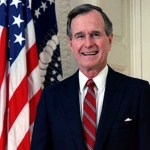
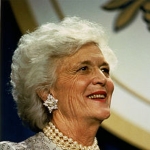
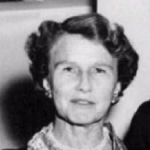
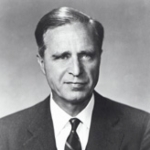
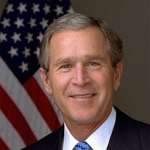
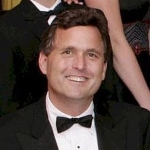
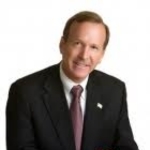
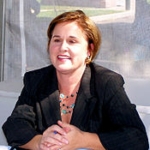
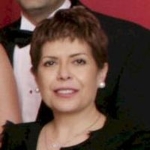
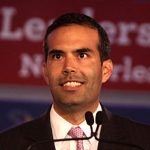
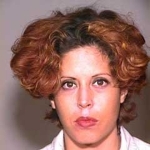
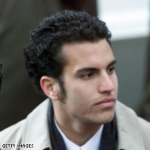
-
Born
-
Nationality
United States -
Ethnicity
-
Religion
Episcopalian -
Political Party
Republican party
Education
-
1969 - 1971
-
1971 - 1973
Career
-
1971 - 1979
-
1987 - 1988
-
1989 - 1989
-
January 5, 1999 - January 2, 2007
















